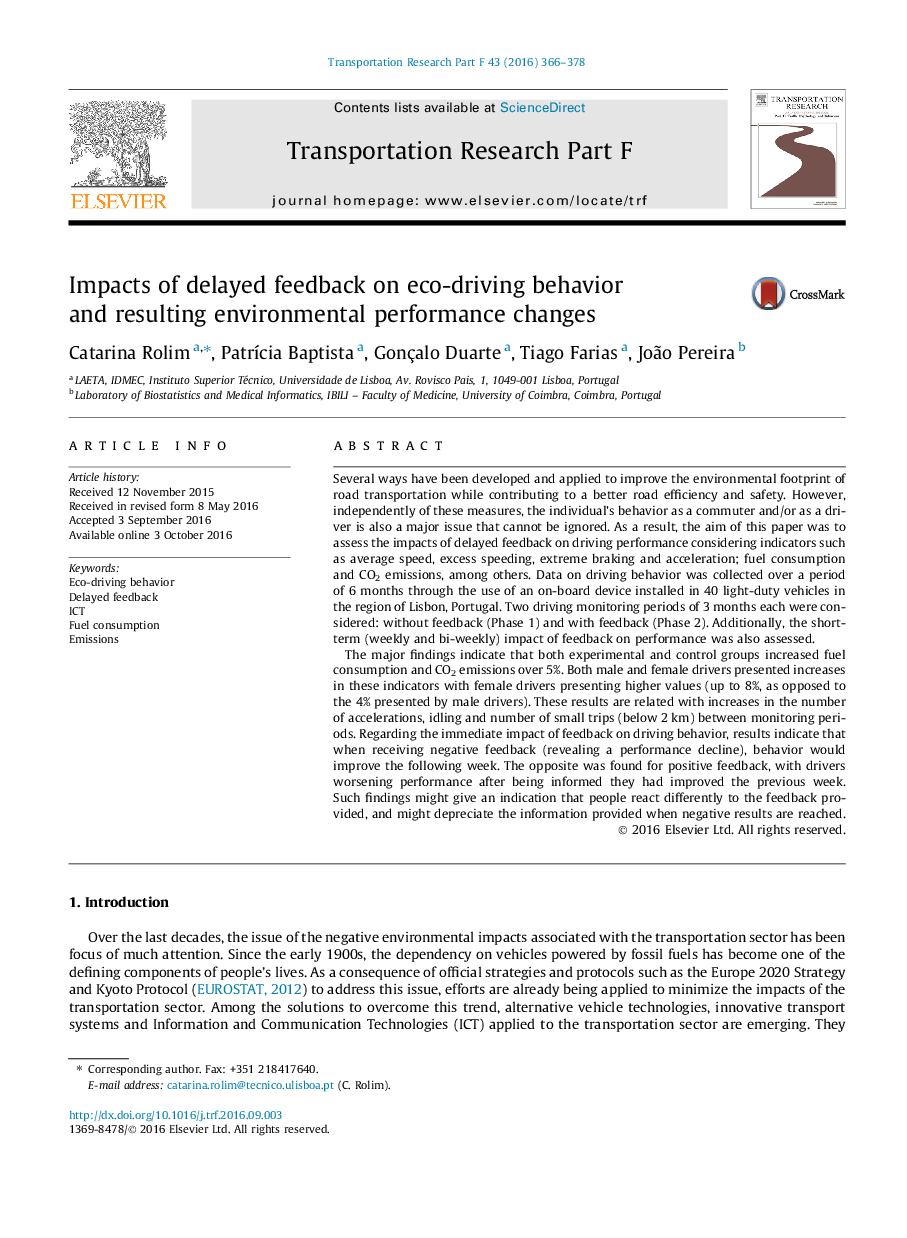| کد مقاله | کد نشریه | سال انتشار | مقاله انگلیسی | نسخه تمام متن |
|---|---|---|---|---|
| 5037496 | 1472442 | 2016 | 13 صفحه PDF | دانلود رایگان |
- Impacts of delayed feedback on eco-driving behavior of passenger vehicle drivers.
- Increases over 5% in fuel consumption and CO2 emissions in both groups.
- Female drivers presented higher increases than male drivers.
- Results related with performance of accelerations, idling and short trips.
- Negative feedback led to short-term improvements and positive to performance decline.
Several ways have been developed and applied to improve the environmental footprint of road transportation while contributing to a better road efficiency and safety. However, independently of these measures, the individual's behavior as a commuter and/or as a driver is also a major issue that cannot be ignored. As a result, the aim of this paper was to assess the impacts of delayed feedback on driving performance considering indicators such as average speed, excess speeding, extreme braking and acceleration; fuel consumption and CO2 emissions, among others. Data on driving behavior was collected over a period of 6 months through the use of an on-board device installed in 40 light-duty vehicles in the region of Lisbon, Portugal. Two driving monitoring periods of 3 months each were considered: without feedback (Phase 1) and with feedback (Phase 2). Additionally, the short-term (weekly and bi-weekly) impact of feedback on performance was also assessed.The major findings indicate that both experimental and control groups increased fuel consumption and CO2 emissions over 5%. Both male and female drivers presented increases in these indicators with female drivers presenting higher values (up to 8%, as opposed to the 4% presented by male drivers). These results are related with increases in the number of accelerations, idling and number of small trips (below 2Â km) between monitoring periods. Regarding the immediate impact of feedback on driving behavior, results indicate that when receiving negative feedback (revealing a performance decline), behavior would improve the following week. The opposite was found for positive feedback, with drivers worsening performance after being informed they had improved the previous week. Such findings might give an indication that people react differently to the feedback provided, and might depreciate the information provided when negative results are reached.
Journal: Transportation Research Part F: Traffic Psychology and Behaviour - Volume 43, November 2016, Pages 366-378
